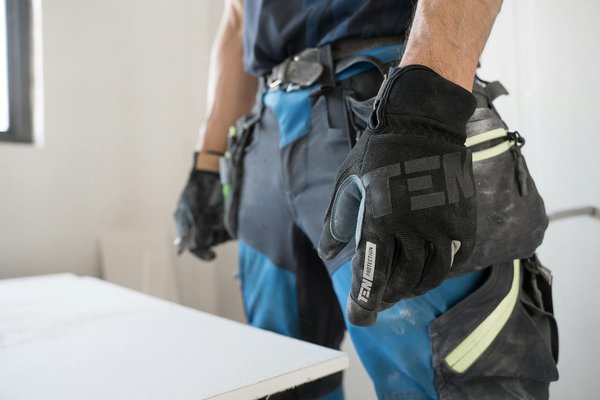
Welcome to Paintingfrom
Your source for Home (EN) insights. Explore our articles and guides.
Our topics
Explore all our Home (EN) content
Deco
Interior decoration and trends
View articles →Equipment
Equipment and appliances
View articles →Garden
Gardening, plants and outdoors
View articles →House
Home maintenance and living
View articles →House moving
Moving tips and organization
View articles →News
Home and housing news
View articles →Real estate
Property, buying and renting
View articles →Swimming pool
Pools, spas and maintenance
View articles →Works
Renovation and DIY projects
View articles →What our readers say
They trust us

A fantastic site, I read it every day.

Well-researched articles that are a pleasure to read.

The go-to reference in the field, period.
Latest articles
Our recent publications

How Can Sustainable Choices Transform Your UK Home Décor?
Unlocking eco-conscious living at home...

How can you use plants to enhance UK interior design?
Elevating indoor spaces in the UK hinges on indoor plant styling that balances beauty with function....

How can you use sustainable materials in UK home decoration?
Exploring how eco-friendly choices shape modern interiors...

How Can Smart Home Devices Improve UK Household Efficiency?
Smart home devices have revolutionised UK household efficiency by offering tangible benefits such as...

What are the best eco-friendly home devices available in the UK?
Discovering the top green gadgets UK has to offer means focusing on products that truly deliver sust...

What are the latest innovations in smart home technology for UK families?
Smart home technology UK has advanced swiftly, reshaping how families interact with their living spa...

How Can a Small Garden Transform Your Outdoor Space?
Even the tiniest patch can undergo a small garden transformation that elevates your entire outdoor e...

How can you design a garden that supports local wildlife in the UK?
Designing a wildlife garden in the UK starts with assessing your garden's current features alongside...

How can you use vertical gardening techniques in your UK home garden?
Vertical gardening basics UK revolve around maximizing limited space by growing plants upwards on st...

How Can Homeowners Reduce Their Carbon Footprint in the UK?
Reducing your UK carbon footprint starts with simple behaviour changes that anyone can adopt. Turnin...

What are the Most Innovative Home Security Technologies in the UK?
Smart home security UK solutions have evolved significantly, combining advanced technology with user...

What Makes British Homes Unique in Their Architectural Style?
British home architecture stands out through its distinctive facades, roofs, and windows that blend ...

How Can Moving Homes in the UK Affect Your Lifestyle Choices?
Small but impactful shifts occur in your daily life immediately after moving house in the UK. One ma...

What Factors Should You Consider Before Relocating Within the UK?
When planning moving within the UK, having a well-crafted relocation checklist is crucial. This ensu...

What Should First-Time Homebuyers Consider Before Moving?
Preparing to move as a first-time homebuyer starts with a detailed first-time homebuyer checklist fo...

How are UK homes adapting to the rise of smart technology?
The UK smart technology trends reveal a clear rise in integrated smart devices across homes. Increas...

What are the most innovative home technologies emerging in the UK?
Emerging smart home trends in the UK are shaping how households operate daily by integrating advance...

What Are the Most Unexpected Events Shaping the UK's Home News Today?
Recent unexpected UK political events have dramatically reshaped the domestic landscape. These break...

How Can Sustainable Practices Be Integrated into the UK Home Real Estate Market?
Sustainable home practices UK focus heavily on energy-efficient retrofits and adopting renewable ene...

How Can UK Home Buyers Protect Themselves in a Volatile Real Estate Market?
Volatility within the UK property market reflects fluctuations in prices and transaction volumes, ca...

How Can You Navigate the Legalities of Buying Property in the UK?
Understanding the property buying process UK is essential for anyone looking to purchase real estate...

How Can You Troubleshoot Common Issues with Your Home Swimming Pool?
Troubleshooting pool issues begins with recognising common swimming pool problems such as cloudy wat...

Should You Consider Alternative Uses for Your Home Swimming Pool?
When exploring repurposing swimming pool options, understanding the primary reasons to convert your ...

What are the most luxurious swimming pool designs for UK homes?
When considering luxurious swimming pool designs for UK homes, several high-end pools stand out. The...

How Can UK Home Improvements Benefit the Environment?
Homeowners undertaking UK home improvements today can significantly reduce their environmental impac...

How Can UK Homeowners Transform Their Living Space on a Budget?
Practical tips to renovate without breaking the bank...

How can you balance aesthetics and functionality in a UK home office?
Designing a UK home office that balances style and usability starts by focusing on key principles. P...

Frequently Asked Questions
Are the articles free?
Yes, all our content is freely accessible.
How often do you publish?
We publish several articles each week.
Can I contribute?
Contact us to submit your articles.
How can I stay updated?
Subscribe to our newsletter.